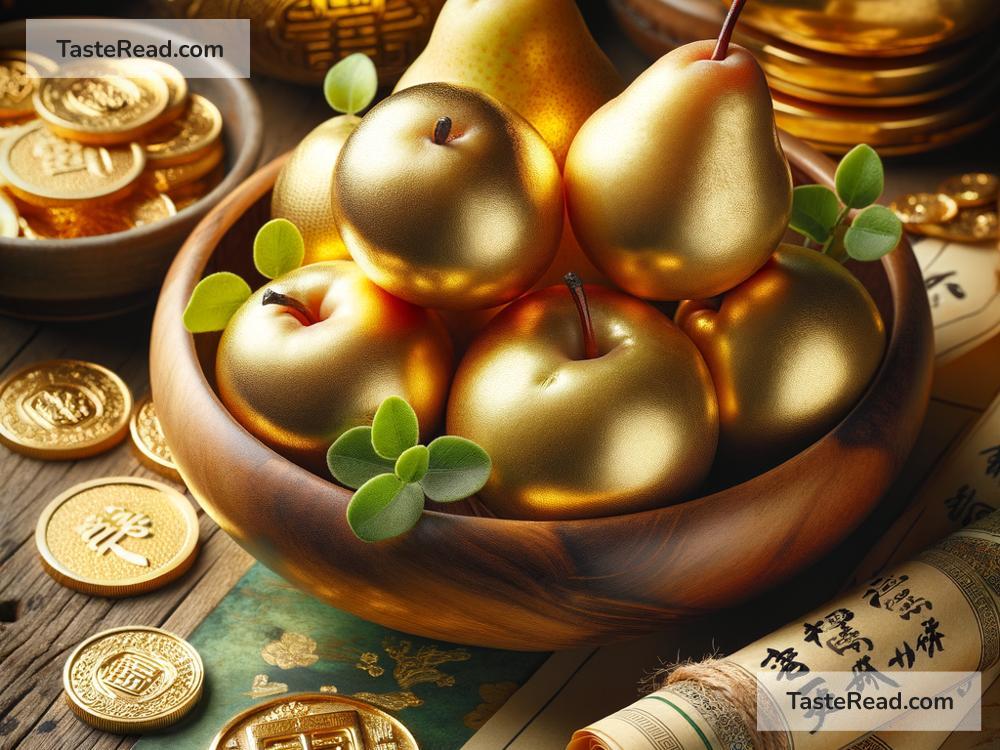How Pears Became Symbols of Longevity
When you think about pears, images of sweet, juicy fruits might come to mind. You might picture them sliced in a fruit salad, baked into a delicious dessert, or enjoyed fresh and crunchy. But did you know that in some cultures, pears are more than just a tasty snack? Pears are often seen as symbols of longevity, representing a long and prosperous life. In this blog, we’ll explore how this humble fruit became associated with such a meaningful idea.
A Fruit with Deep Roots in History
Pears have a long history that dates back thousands of years. These fruits were cultivated as early as 3,000 years ago, in regions like Europe, Asia, and the Mediterranean. Their ability to grow in a variety of climates made them highly valued by ancient civilizations.
In Chinese culture, pears have been admired for their graceful appearance and taste for centuries. They are mentioned in many ancient texts, and the trees that bear them were often planted in places of importance. The pear tree’s hardiness, ability to live for many years, and the fruit’s natural beauty contributed to its symbolic meaning. Over time, pears came to represent longevity and resilience.
The Connection to Longevity
The link between pears and longevity has much to do with the characteristics of the pear tree itself. Pear trees are known to live for a very long time. In fact, some pear trees can live for over a hundred years if properly cared for. This longevity inspired people to see pears as more than just a source of food—many believed the fruit carried a deeper meaning.
In traditional Chinese culture, pears are often associated with vitality and endurance. They are seen as a reminder that life itself, though sometimes challenging, can be long and prosperous if nurtured. The fruit’s ability to thrive for such a long time in nature resonated with those who valued the idea of a full, healthy life.
Pear Trees in Art and Literature
The symbolism of pears hasn’t been limited to everyday life. Pear trees and fruits often appear in art, literature, and even folklore. Their imagery has been used to represent longevity, grace, and stability.
In Chinese art, pear trees are sometimes painted to stand alongside bamboo and pine trees, which also symbolize strength, resilience, and long life. Together, these plants create a visual harmony that celebrates longevity and perseverance.
Similarly, in poems and stories from different parts of the world, pears are often linked to themes of growth and endurance. For instance, in European folklore, pear trees were sometimes planted in honor of family members or as part of celebrations.
Pears as Gifts of Good Wishes
Because of their symbolic meaning, pears became popular gifts for celebrations and special occasions. In many Asian cultures, people give pears as a way to express good wishes for health and a long life. Pears may be included in wedding ceremonies, birthdays, or even the Lunar New Year as a gesture of hope and positivity.
However, in some Chinese traditions, there is a bit of superstition surrounding giving pears. The word for “pear” (lí) sounds similar to the word for “separation” in Mandarin. Because of this, pears might not be exchanged between lovers or close friends, as it could symbolize drifting apart. Despite this linguistic quirk, pears still hold a very positive association with long life in most scenarios.
Pears and Health
Aside from their symbolic meaning, pears are also linked to longevity because they are incredibly healthy. Rich in vitamins, fiber, and antioxidants, pears are a nutritious addition to any diet. Eating pears regularly can improve heart health, support digestion, and strengthen the immune system—all factors that contribute to living a longer, healthier life.
In traditional Chinese medicine, pears are often used for their cooling properties to soothe the body. They are believed to help with coughs, hydration, and overall well-being. This practical use of pears further supports their status as a symbol of health and longevity.
The Pear’s Global Appeal
While Chinese culture has heavily influenced the idea of pears as symbols of longevity, other cultures around the world have also admired this fruit. In European countries, pears are seen as reminders of harvest seasons and family traditions. In the Middle East, pears are celebrated in culinary dishes and are associated with abundance.
This global appreciation for pears shows how one fruit can hold different meanings for people across cultures but still carry a universal sense of goodness and vitality.
Conclusion
Pears may seem like a simple fruit, but their history, symbolism, and health benefits reveal a deeper meaning. For centuries, they have been celebrated as a representation of a long and fulfilling life. Their beautiful shape, delightful flavor, and long-lasting trees inspire people to value resilience and prosperity.
So, the next time you bite into a pear, take a moment to appreciate the rich history and symbolism that this fruit carries. It might just remind you to savor the sweetness of life, while hoping for the blessings of longevity and good health!


